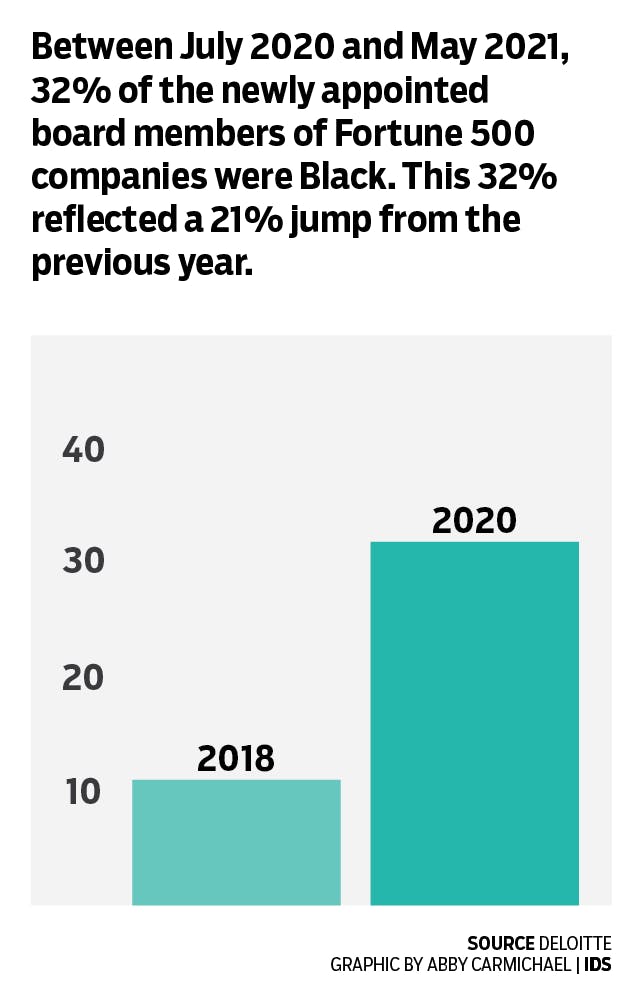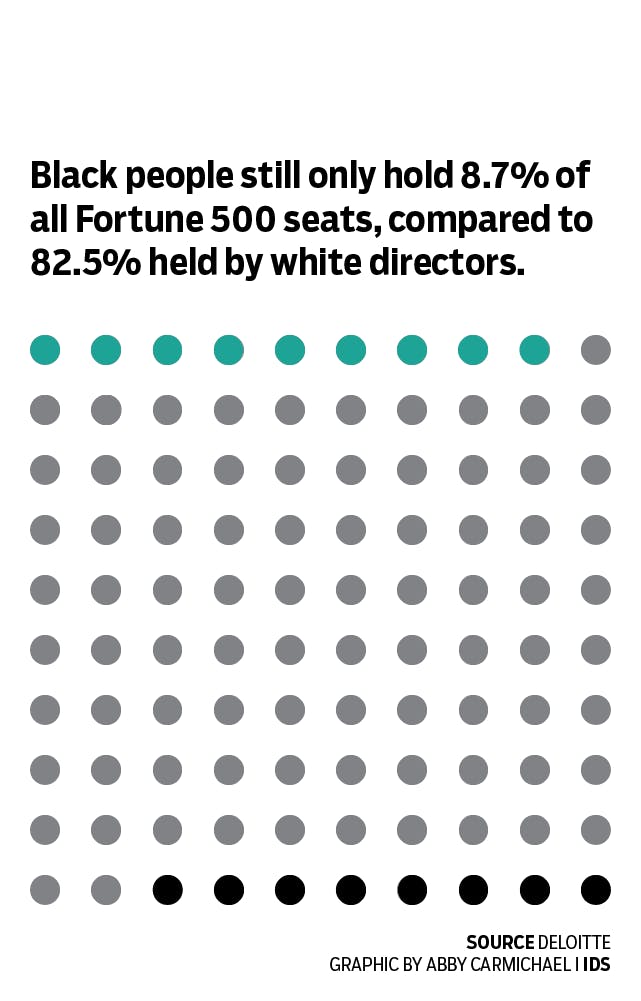Between June 2018 and July 2020, the percentage of Black men on Fortune 500 boards fell by 1.5%, according to Deloitte’s Missing Pieces Report.
Black representation in corporate leadership roles has historically been underwhelming with corporations being more frequently pressured to publicly embrace diversity, equity and inclusion.
[Since the start of 2020, Black representation in corporate sectors has improved, but it’s still nowhere near equitable.]
After the public outcry following the tragic murder of George Floyd, Black representation on corporate boards saw an aggressive increase. Between July 2020 and May 2021, 32% of the newly appointed board members of Fortune 500 companies were Black, according to Deloitte’s Missing Pieces Report. This 32% reflected a 21% jump from the previous year, where Black people only represented 11% of the newly appointed board members.

While this data is promising for increased Black representation in corporations, it is important to take a look at context and understand the overarching trends before making any conclusions.
The questions remain of whether these efforts are genuine or symbolic for improved public perception.
Genuine or not, material progress in certain areas has certainly been made, but from a cumulative standpoint, the lack of Black representation in corporate leadership has barely improved.
Cumulatively, Black men lost Fortune 500 board seats in 2020, regardless of the increase in their portion of new board appointments. There are only four Black CEOs among all Fortune 500 companies, according to Yahoo Finance.
This reflects the historic dominance of white men in corporate leadership and just how much progress is needed for any material changes in the composition of these corporate boards.
One example of an underlying contributing factor behind delayed progress is the concentration of Black people who receive board of director seats.
According to Deloitte, little over two of every five Fortune 500 board seats held by a Black person is held by one who serves on multiple Fortune 500 boards. This means that the same Black professionals keep receiving the open board seats. So while this does contribute needed diversity to corporate boards, it still leaves Black people as the minority overall on corporate boards.
There is some promising yearly data, but it is paramount to consider the contextual evidence as to why, cumulatively, representation is improving so slowly. Black people still only hold 8.7% of all Fortune 500 Board seats, compared to 82.5% held by white directors.

To make material progress, there will need to be sustained genuine efforts at correcting the deficits of Black representation in corporate leadership roles. This lack of representation is a product of systemic injustices, which accordingly requires systemic attention for a material impact to be made.






